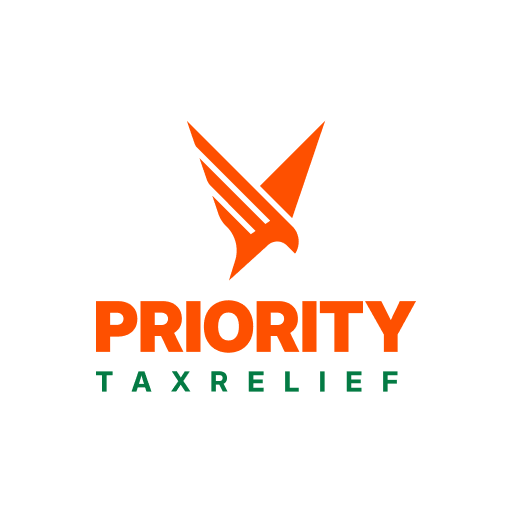Virginia State Income Tax: Rates and Brackets for 2025-2026
Virginia has a progressive tax structure, with four rates ranging from 2% to 5.75%. Learn about who pays Virginia state tax and when.

Many, or all, of the products featured on this page are from our advertising partners who compensate us when you take certain actions on our website or click to take an action on their website. However, this does not influence our evaluations. Our opinions are our own. Here is a list of our partners and here's how we make money.
Virginia's state income tax follows a graduated system, similar to the way federal taxes are determined. This means different portions of your income may be taxed at different rates rather than a single flat rate. Learn more about Virginia's income tax system, who pays and other taxes.
What are the Virginia income tax rates and brackets?
For 2025 (taxes filed in 2026), Virginia income tax rates are 2%, 3%, 5% and 5.75%.
For example, someone earning $50,000 in taxable income would pay 2% on the first $3,000, 3% on the portion between $3,001 and $5,000, 5% on the amount between $5,001 and $17,000 and 5.75% on the remaining income.
Tax rate | Taxable income bracket | Tax owed |
|---|---|---|
2% | $0 to $3,000. | 2% of taxable income. |
3% | $3,001 to $5,000. | $60 plus 3% of the amount over $3,000. |
5% | $5,001 to $17,000. | $120 plus 5% of the amount over $5,000. |
5.75% | $17,001 and up. | $720 plus 5.75% of the amount over $17,000. |
Source: Virginia Department of Taxation. | ||
Do I have to pay Virginia state income tax?
Virginia residents, part-year residents and nonresidents with income from Virginia sources may be subject to state income tax if they're
Required to file a federal tax return, and
If they have a Virginia adjusted gross income (VAGI) above $11,950 (single or married filing separately) or $23,900 (married filing jointly). In most cases, your VAGI is your federal adjusted gross income with certain additions and subtractions.
Here's more on the three residency statuses, which determine what portion of your income the state will tax.
» Need to file in multiple states? State income tax rates and how they work

on Priority Tax Relief's website

on Alleviate Tax's website
Does Virginia tax capital gains?
Yes. Virginia treats most capital gains as ordinary income, which means they are subject to the standard state income tax rates, which range from 2% to 5.75%. However, filers may be able to deduct certain federal long-term gains from their Virginia income tax return. Long-term capital gains refer to profits from the sale of an asset or investment that was held for more than a year before its sale.
Does Virginia have an inheritance or estate tax?
Virginia does not levy state taxes on inheritances or estates. There is no federal inheritance tax, and federal estate taxes only apply to assets over $13.99 million in 2025 and $15 million in 2026.
When is the Virginia state income tax deadline?
The deadline to file your 2025 individual state income tax return in Virginia is May 1, 2026.
If you miss the May due date, you may be able to take advantage of Virginia’s automatic extension, which gives most Virginia taxpayers until Nov. 1 — an additional six months — to file with no application required.
Remember, though, a tax extension comes with a price tag if you don’t read the fine print. Extensions do not give you more time to pay your taxes; they only give you more time to file your return. If you're going to take advantage of the extension, you will still need to pay your estimated tax bill by the May 1 deadline to avoid late-filing penalties or interest.
» Still need to file? See our picks for the best tax software
Other Virginia taxes to know about
Sales tax. Virginia's state sales tax rate is 5.3% in most places, but some counties may levy additional local sales taxes. This can bring the combined state and local sales tax rate up to 7% in some locations. Groceries and personal hygiene items are taxed at a reduced rate of 1% across the state.
Property taxes. Property tax rates are determined locally and therefore can vary by city, county or town. The amount of tax is usually determined by the value of your home. Per the Tax Foundation, the average state and local property tax paid per capita is $2,019. For more information on your local rates or property tax due dates, see the Virginia Department of Taxation website.
Lottery taxes. Lottery winnings are considered income and are subject to regular state income tax rates when you file your annual state tax return. If your total winnings are below $5,000, the Virginia Lottery does not automatically withhold taxes. However, for winnings of $5,000 or more, the Virginia Lottery automatically withholds 4% of the total amount. This applies to both resident and nonresident winners. (Learn more about federal lottery taxes.)
Social Security taxes. Just as they are at the federal level, distributions from retirement accounts such as pensions, traditional 401(k)s and IRAs, as well as some types of railroad retirement accounts, are taxable. However, Virginia does not impose taxes on Social Security benefits received. A nice bonus is that if any of your Social Security benefits are taxed at the federal level, you can write off that amount as a deduction on your state income tax return.

on Priority Tax Relief's website

on Alleviate Tax's website
5 things to know about Virginia state income tax
Virginia has reciprocity with Kentucky, Maryland, Pennsylvania, West Virginia and Washington, D.C. That means Virginia residents with a “limited presence” in those states are taxed only by Virginia, and residents of the other states who have a limited presence in Virginia are only taxed by their home states.
Some people qualify for the IRS Free File program, which may cover a state return.
If you can’t afford your tax bill, Virginia offers payment plans that you can set up online or over the phone.
You can also apply for the state’s offer in compromise program, which might allow you to pay less than you owe.
Wondering where your Virginia state tax refund is? Good news: You can check the status of your state tax refund online.
About Virginia Taxes
About Virginia Taxes









